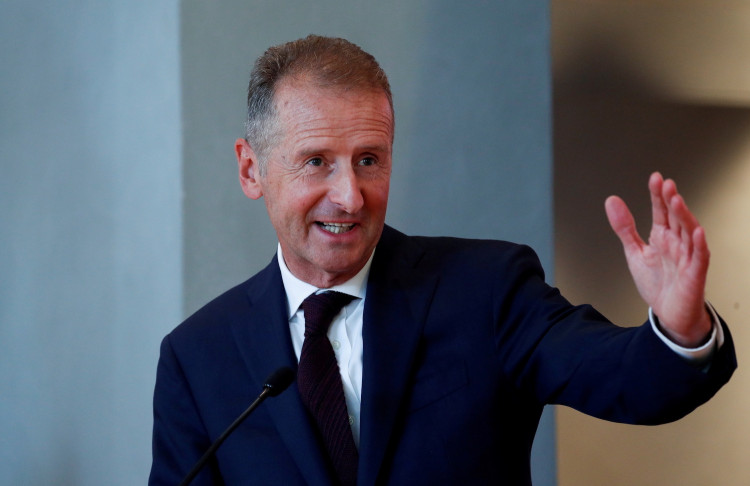Despite claims of human rights violations in China's Xinjiang region, Volkswagen's chief executive indicated in comments published by the Handelsblatt newspaper on Monday that the company expects to continue operating there.
"I believe that the presence of SAIC Volkswagen leads to the situation improving for people," Chief Executive Herbert Diess Handelsblatt.
"We travel there, and like everywhere in the world we ensure our labor standards are implemented, and that cultural and religious differences are respected," he added.
According to the report, he stated that any evidence of misconduct at the Xinjiang factory will be greeted with "massive" retaliation.
The German automaker, which has a joint venture with China's largest automaker SAIC Motor, has operated a facility in Urumqi, the capital of the western region, where Western nations and rights groups allege ethnic Uyghurs face torture and detention, since 2013.
According to a Friday report in Der Spiegel, Germany's Economy Ministry has refused to give VW guarantees to cover further investments in China due to alleged human rights breaches.
China has constantly denied any wrongdoing against Uyghurs, portraying purported detention camps as voluntary vocational training institutions.
Volkswagen has also come under fire in Brazil, where public prosecutors have opened an inquiry into alleged human rights crimes relating to a cattle farm there.
Following a notification received by the local justice on May 19, Volkswagen has been called to appear before a labor court in Brasilia on June 14, according to ARD public television and the Sueddeutsche Zeitung daily.
A VW representative told Agence France-Presse that the company was "very serious" about the situation.
However, "due to possible legal proceedings," the world's second-largest automaker declined to say more at this time.
The lawsuit spans the years 1974-1986, when the dictatorship was in full swing, until shortly after it ended. Brazil was ruled by the military from 1964 until 1985.
Former Volkswagen employees have been pursuing restitution for several years.
According to reports, the Brazilian judiciary is investigating accusations alleging that the vehicle maker engaged in "slavery-like practices" and "human trafficking," and that the firm was implicated in "systematic human rights violations."
The German company had intended to establish a big agricultural facility on the outskirts of the Amazon basin for the meat trade at the time.
Hundreds of day laborers and temporary workers were recruited through middlemen for deforestation work on 70,000 hectares (173,000 acres) with the permission of the manufacturer's management, according to German media.
Over 2,000 pages of testimony and police reports were studied by the publications.






